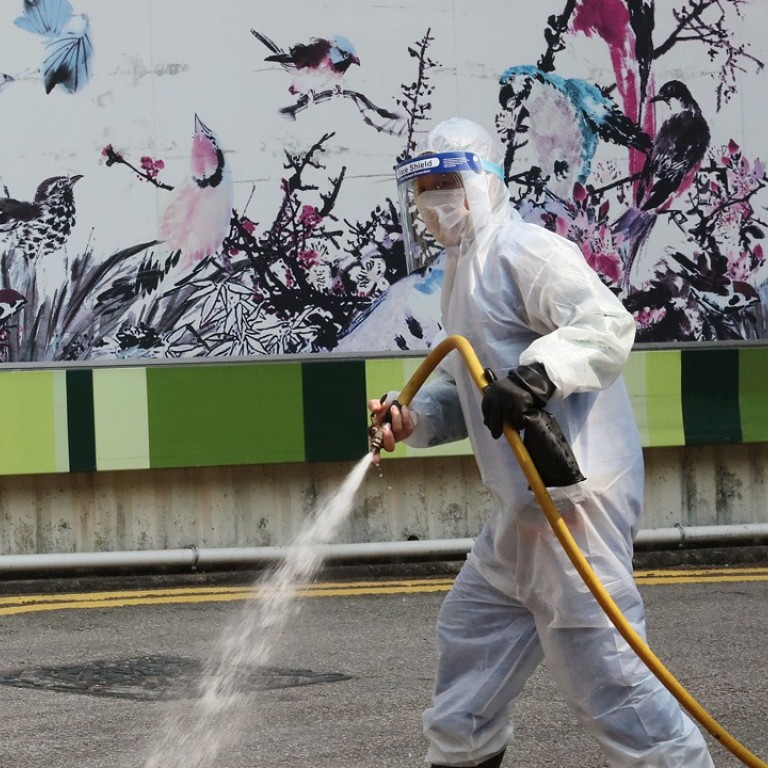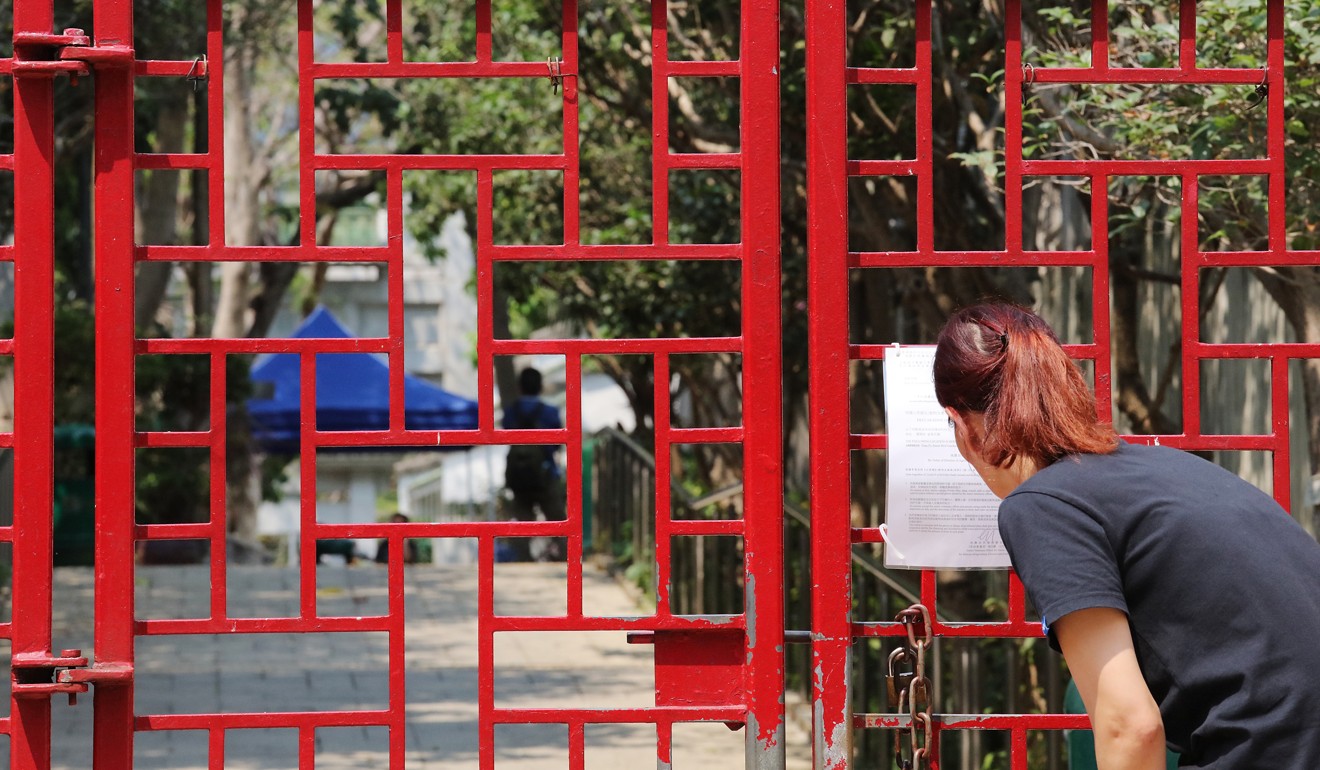
Bird flu scare shuts down popular songbird garden in Hong Kong for 21 days
Cleansing operation launched after hill mynah sample from a shop tested positive for the H5 virus, but store owners are still selling feed over fences set up to isolate the area
A bird flu scare in Hong Kong has silenced the repertoire of caged tunes enthusiasts are accustomed to hearing at the popular Yuen Po Street Bird Garden in Mong Kok, as authorities on Friday closed down the area for 21 days and declared it an infection risk.
A cleansing operation is under way, after a swab sample from a hill mynah sold at a pet shop was found to contain the H5 virus, a strain of bird flu that can be transmitted to humans.
The sample was collected on April 7 for laboratory tests under a routine surveillance programme by the Agriculture, Fisheries and Conservation Department, a spokesman said.

Store operators and workers are being medically monitored by the Centre for Health Protection, but they are still allowed to move freely in and out of the area.
All birds from the affected shop were sent to an animal management centre in Sheung Shui for culling, the spokesman added. “Pet bird shops in the bird garden are being closely monitored. So far nothing abnormal has been detected,” he said.
As of the end of March, the department had collected a total of 788 samples from 33 pet bird shops across the city, and 2,980 samples last year.
None tested positive for the highly pathogenic virus that is more commonly found in wild birds and occasionally in live poultry.
With vigilance slipping and a hard-pressed health system, is Hong Kong ready for the next deadly epidemic?
The bird flu virus in general can make the jump to humans occasionally, but person-to-person transmission is less common. When people do become infected, the mortality rate can be up to 60 per cent.
The Post visited the bird market and found that all entrances to the tourist attraction had been fenced off, with official notices warning against the risk of infection.
At noon, cleaners began disinfecting alleys and surrounding premises.
The closure, however, did not stop operators from selling bird feed and other supplies over the fence.
Several cardboard signs scribbled with store names and numbers were hung on a wall partition for bird owners wanting to buy feed.
Bonnie Cheng, a buyer, said she was not worried about the bird flu scare. “I don’t bring my parrot out here like the others do, I keep it in my house,” Cheng said.
One of the affected shop owners, surnamed Au, said hygiene was always their top priority. “We make sure to clean the area day and night, but I guess accidents can always happen.
“It’s 21 days with no money to earn, but we still have to feed our birds. We’ll discuss the matter of compensation with the government,” he said.
It’s 21 days with no money to earn, but we still have to feed our birds. We’ll discuss the matter of compensation with the government
Tse Wai-lun, a research officer from the Hong Kong Bird Watching Society, said the hill mynah species was not native to Hong Kong and not common locally in the wild.
According to Tse, the black-coloured bird, popular among enthusiasts, is usually imported from Southeast Asia.
“People like having it as a pet because it knows how to sing and mimic voices,” Tse said. “If you happen to see it here in the wild, it’s because they either got lost or their owners released them.”
Authorities urged members of the public who might have recently visited the garden and had close contact with birds in the area to seek medical advice as soon as possible if they develop respiratory symptoms.
On Friday evening, the Centre for Health Protection said in a statement that so far, no staff and store owners had displayed any symptoms of infection.
The bird garden and market area was last closed in July 2012 after the H5N1 virus was detected among songbirds.
In January, the H5N6 virus was found in swabs from a chopping board and the skin of a chilled duck sample taken from a provision shop in Wan Chai.
Chicken sample from Hong Kong vendor positive for bird flu virus, as officials urge calm after its sale
Later that month, an oropharyngeal swab from a batch of chilled chicken taken from a shop in Mong Kok was found to contain the H5 strain.
In February, a wild black-headed gull carcass found at Ngau Hom Tsuen in Lau Fau Shan tested positive for the H5N6 virus.
In 2014, the government ordered the culling of 19,000 chickens in the city followed by an import ban after samples from a Guangdong farm tested positive for H7N9.


